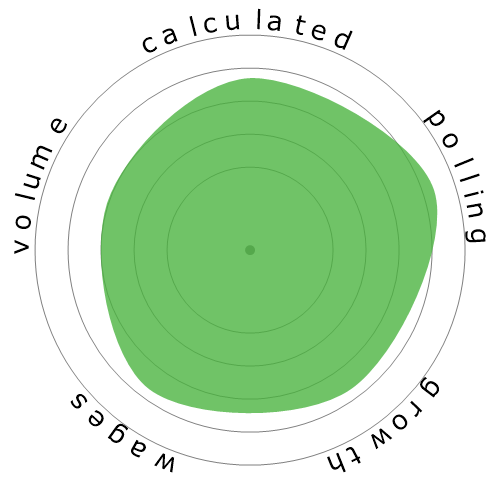Electrical Engineers
Where Would You Like to Go Next?
Or, Explore This Profession in Greater Detail...


What does this snowflake show?
What's this?
We rate jobs using four factors. These are:
- Chance of being automated
- Job growth
- Wages
- Volume of available positions
These are some key things to think about when job hunting.
People also viewed
Calculated automation risk
Low Risk (21-40%): Jobs in this level have a limited risk of automation, as they demand a mix of technical and human-centric skills.
More information on what this score is, and how it is calculated is available here.
User poll
Our visitors have voted there's a low chance this occupation will be automated. This assessment is further supported by the calculated automation risk level, which estimates 25% chance of automation.
What do you think the risk of automation is?
What is the likelihood that Electrical Engineers will be replaced by robots or artificial intelligence within the next 20 years?
Sentiment
The following graph is shown where there are enough votes to produce meaningful data. It displays user poll results over time, providing a clear indication of sentiment trends.
Sentiment over time (yearly)
Growth
The number of 'Electrical Engineers' job openings is expected to rise 9.1% by 2033
Total employment, and estimated job openings
Updated projections are due 09-2025.
Wages
In 2023, the median annual wage for 'Electrical Engineers' was $106,950, or $51 per hour
'Electrical Engineers' were paid 122.5% higher than the national median wage, which stood at $48,060
Wages over time
Volume
As of 2023 there were 185,430 people employed as 'Electrical Engineers' within the United States.
This represents around 0.12% of the employed workforce across the country
Put another way, around 1 in 818 people are employed as 'Electrical Engineers'.
Job description
Research, design, develop, test, or supervise the manufacturing and installation of electrical equipment, components, or systems for commercial, industrial, military, or scientific use.
SOC Code: 17-2071.00
Comments (35)
AI can assist with calculations, much like other software tools we use, but it must be operated by a qualified engineer. Our work is highly critical—errors in design can lead to serious consequences, such as fire hazards. Therefore, AI should be used by engineers who understand the mathematical and scientific principles behind each design decision.
Imagination is needed for engineering.
Great minds will never be replaced.
Generation automation will take a hit, the automation will be highly driven affected by AI
Electrical instalations will always take humans to set up.
Relegating most repetive tasks will be a pleasure
Surely this will be focused in PID control and dealing with its mathematical complexity
I am quite skeptical. Only time will tell.
Reply to comment